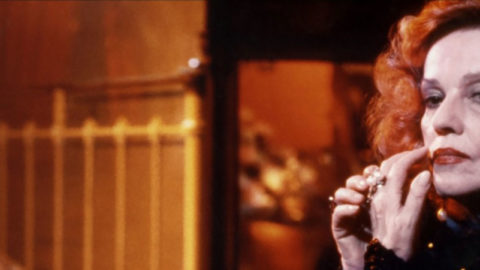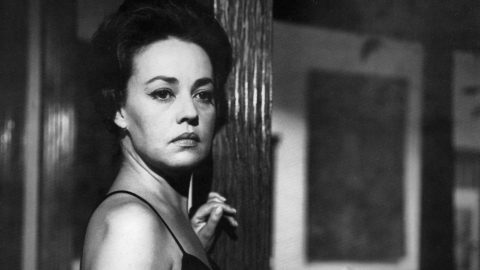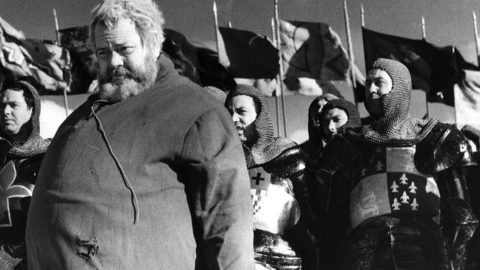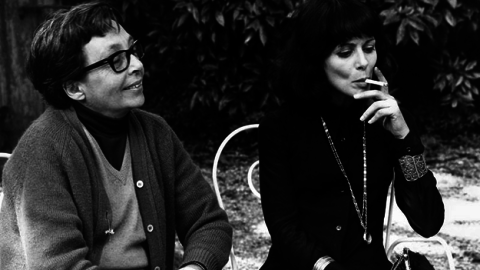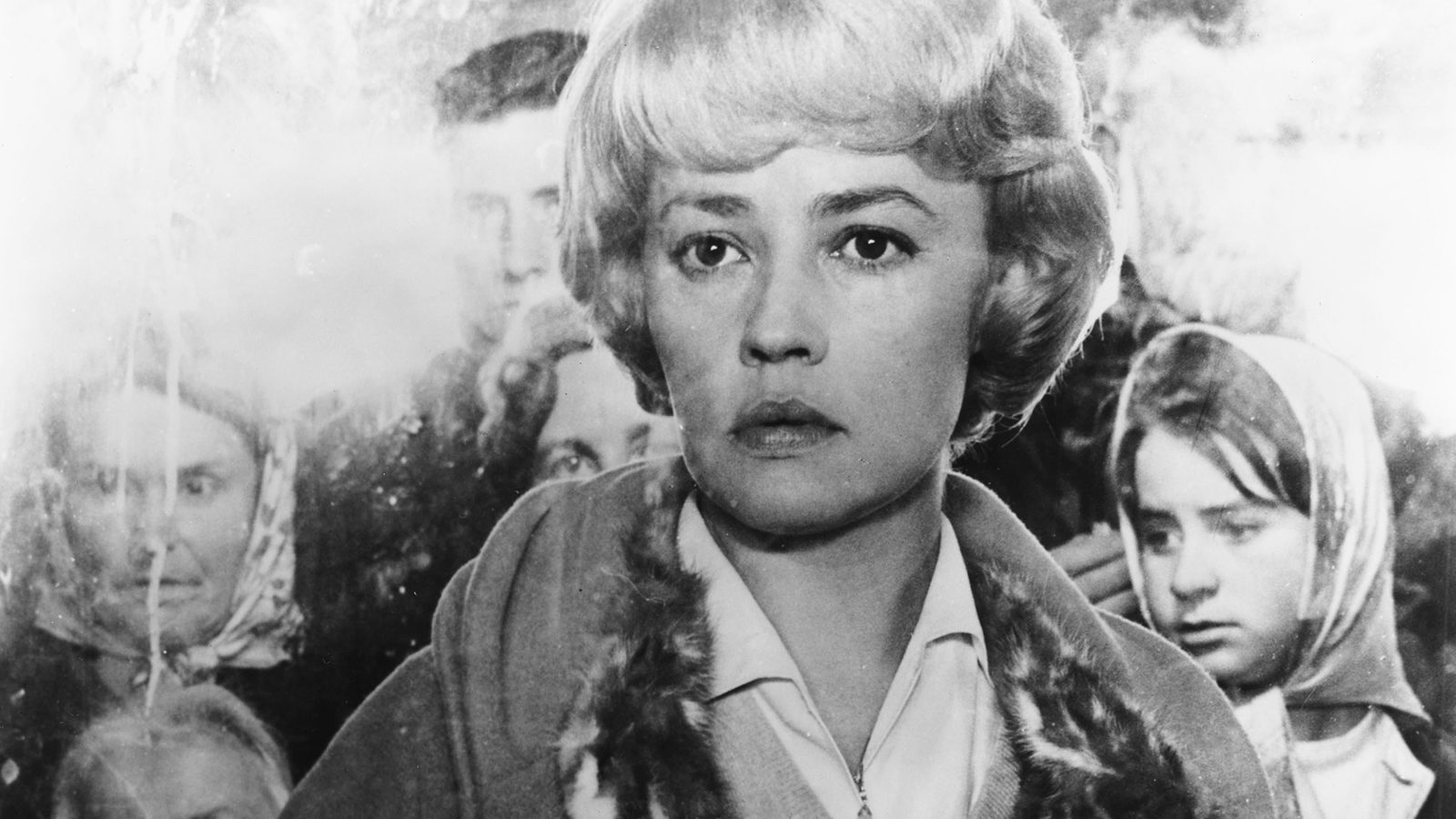
Finest Hour: Phantom of Liberty
In a review of Marguerite Duras’s 1958 novel Moderato Cantabile for Libération, Claude Roy declared that the author was “determined to bring to bear on the world and its inhabitants a gaze as detached and objective as that of a camera lens.” In another review, Dominique Aury invoked the structuring negativity of Duras’s groundbreaking narrative style: “She says much by saying little. She exerts force by way of evasion. She forms a kind of vacuum into which all that is neither described nor named rushes irresistibly, announces itself, bursts forth with its own self-evidence.”Just two years later, the screen adaptation penned by Duras herself was released in France; from its conception, the film was to star Jeanne Moreau in the lead role of Anne Desbarèdes.
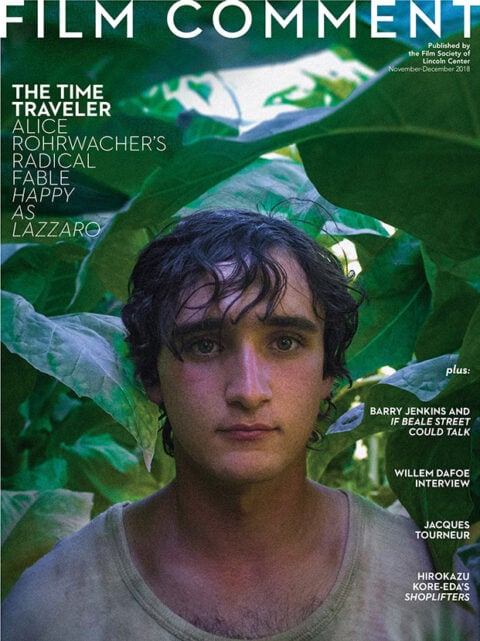
Moreau started out on the stage, and was inducted into the Comédie-Française at only 20 years old. By the time theater director Peter Brook cast her to star in Moderato Cantabile in 1960, she had already worked with several icons of postwar French cinema, most notably Louis Malle, for whom in 1958 she gave a pair of breakout performances, in Elevator to the Gallows and The Lovers. Yet at 32 years old, she had yet to bring to life many of her most iconic characters, in such monumental auteur-driven projects as Jules and Jim, La notte, Diary of a Chambermaid, and Chimes at Midnight.
Throughout her career, Moreau carried with her an attributed persona that would become laden with connotations. For audiences and filmmakers alike, she stood for the quintessential femme tragique, an archetype and a romantic ideal of French womanhood, with her distinctive, soft-featured expressivity and her subtly dynamic beauty, through which she could exude a rich, intelligent mournfulness even in moments of vivacious good cheer. She enjoyed the friendship and admiration of Duras and Orson Welles, and was involved in a number of celebrated love affairs over the course of her life, including relationships with Malle, François Truffaut, and William Friedkin, her second husband.
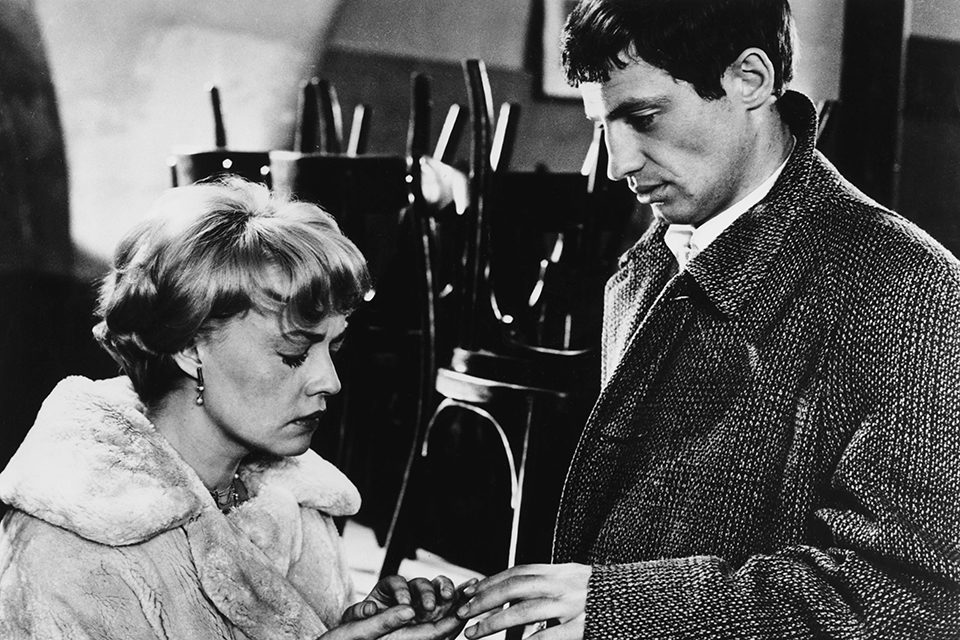
Photo: Documento/Iena/Kobal/REX/Shutterstock
In Moderato Cantabile, for which she was awarded Best Actress at the 1960 Cannes Film Festival, Moreau plays the unhappily married wife of a bourgeois businessman in a quiet industrial town. Her husband, a blandly gruff and broadly incurious factory owner, occupies the narrative as little more than a context for Anne’s unexamined malaise. The film opens on a piano lesson, during which Anne watches her young son endure light scolding from his teacher for an impatient pass over a sonatina intended to be played moderato cantabile—“moderate and melodic.” Abruptly, the lesson is interrupted by the anguished wail of an unseen woman coming through the open window from the street below. Emerging, Anne is drawn as though by a magnetic force into a crowd of onlookers converging on a nearby café, where a beautiful woman lies dead, slain by a man who appears to have been her lover.
Anne remains irrepressibly captivated, and over the next several days is compelled to return to the café, again and again. There she meets another of the bystanders, a handsome worker, Chauvin (Jean-Paul Belmondo), employed by her husband’s factory, and over unending refills of red wine, they talk about the murder, unfolding for each other an imagined love story between the woman and her killer, an affair perhaps marked by des difficultés du cœur—heartache. Anne asks questions with a hushed, halting, near-reverent breathlessness; Chauvin plays along, weaving a vague, seductively charged story about the fatal romance. Tension builds between the pair, drawing them closer over the course of a week (the film’s alternate English title was Seven Days… Seven Nights), though Anne’s psychological motivations are never explained. She speaks little about her own emotional state; it is instead left to the viewer to make sense of the vast ambiguities contained in her actions, and to piece together how, precisely, this event has disturbed her equilibrium.
Anne’s daily life as a wife and mother is shown to resemble the repetitive routine of her son’s piano lessons, with their emptily pretty, insistently temperate exercises, until an unknowably dire external event intrudes, rupturing the flow of the routine, jolting her inner metronome. Questions proliferate and linger. Are the conversations with Chauvin a pretext for their rendezvous, or are the rendezvous impelled by her inexorable fascination with the anonymous, doomed lovers? Anne wants to be told a story, and Chauvin is happy to oblige her. The resulting interchange conveys the impression that Anne is at once in full command of the fiction and wholly committed to believing in its reality. At one point, she murmurs to her son as though to herself: “Sometimes I think I invented you, that none of this is real.”
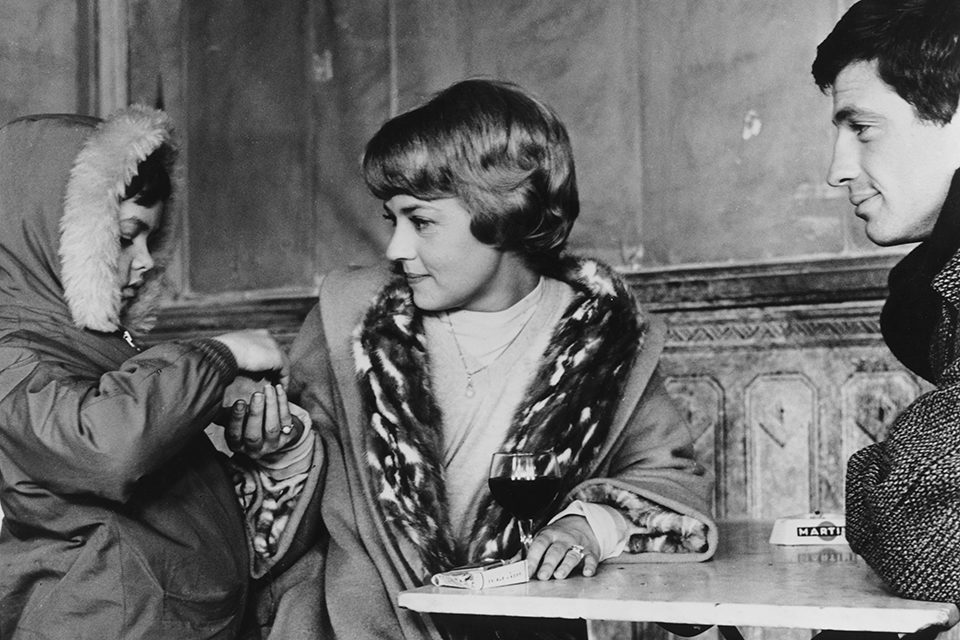
Photo: Documento/Iena/Kobal/REX/Shutterstock
In navigating these melodramatic swells of psychological ambiguity, Moreau’s own grasp of the character is steadying in its coherence. She deftly shifts from a register of mesmerized intensity to one of simmering, barely stifled agitation, of playfully maternal doting to coyly flirtatious watching. The texture and substance of her long silences give the impression that Anne is ill at ease in her own skin, and make Moreau an effective foil for Belmondo’s smooth blank canvas of libidinous sex appeal (which he used to very different effect earlier the same year in Breathless). Her latent energy is similarly on display in Antonioni’s La notte, in which she plays an angst-ridden wife whose wanderings are the expression of an uneasy detachment from her material circumstances and an ambient, ambivalent longing. In Brook’s film, Anne’s condition of uncomfortably passive haut-bourgeois nobility is portrayed as primarily an experience of isolation: posed in the center of a door frame or pressed against the bars of an iron gate, Moreau’s body is repeatedly deployed to suggest her state of mind.
In the role of Anne Desbarèdes, Moreau is not so much the protagonist of the story as the gravitational center of the adaptation, calibrating the film’s faithfulness to the spirit of the novel. Her performance sets the tempo and the key for melodic lines of raw, pulsating affect that are threaded through the minimalist and straightforwardly realist narrative. It also functions as a vehicle through which the stylistic resonances of the nouveau roman are transubstantiated into the medium of cinema: the enigmatic surface, the brooding opaqueness modulated by intricate undercurrents of feeling.
In his review, Roy characterized Duras’s novel as “Madame Bovary retold by Béla Bartók,” and indeed, book and film alike might be said to follow in the grand tradition of French stories that glorify an unhappy, sexually frustrated woman of the bourgeoisie who fights ennui by acting out. With her interpretation of Anne, Moreau both honors and exceeds that tradition. There’s a sense that her character wears the mantles of gender, class, and family status uneasily, as though the categories themselves don’t quite suit or make sense to her. She’s not entering into this liaison with Chauvin as an explicitly sexual endeavor, but by plumbing the hypothetical tragic love story of the unknown dead woman, she’s making contact with her own emotional and erotic capacities, and with her mortality. The note-perfect fluency of Moreau’s performative code-switching suggests that her character’s emotional identity has long been constrained by the demands and allowances of motherhood, and that she is straining to break out of that pigeonhole.
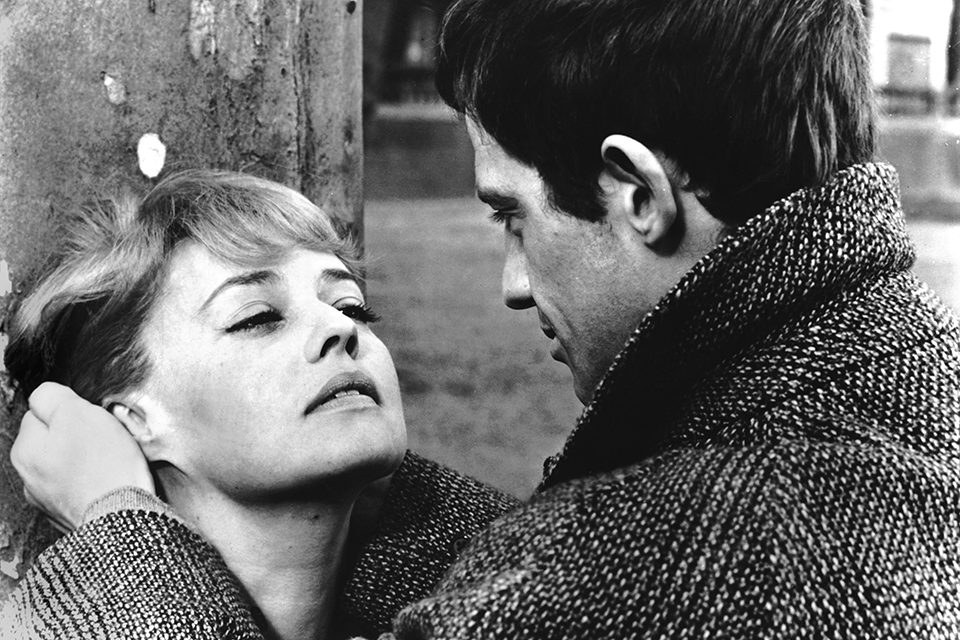
Photo: Documento/Iena/Kobal/REX/Shutterstock
Like Catherine in Jules and Jim, and the obsession-inducing statue she is said to resemble, the figure of Anne Desbarèdes is defined in relation to a well-worn quality of feminine inscrutability, but here, Moreau transcends the trope. Anne is impossible to grasp, full of obscure desires and enigmatic drives, as though the contours of her very being are blurred; yet, thanks to Moreau, Anne is never reduced to the vessel for some masculine projection of womanly mystique. Rather, we intuit that Madame Desbarèdes’s mysteries are a symptom of her piercing, apprehensive intelligence and her restless, ever-vigilant sensitivity.
When Moreau died last year at the age of 89, many obituaries betrayed a shared, apparently reflexive fascination with her singular, ineffable physical beauty. This, paired with a larger-than-life aura of cultural resonance, was offered up as the primary evidence to explain her status as a spiritual model of 1960s French femininity. Yet in Moderato Cantabile, her face itself takes on the quality of a mirage, its meaning apparently manifest one moment, but quick to dissolve before your eyes. Her performance’s signifying power has little to do with her archetypal Frenchness, or her femininity, or even her beauty. It’s about her felt experience, as though Moreau’s intensely embodied, luminously haunted modes of expression render connotation or psychological interpretation irrelevant, in much the same way that the abstractions at work in Duras’s narrative construction and thematics render descriptive language superfluous.
Madeline Whittle works in the programming department at the Film Society of Lincoln Center and as a freelance translator.



